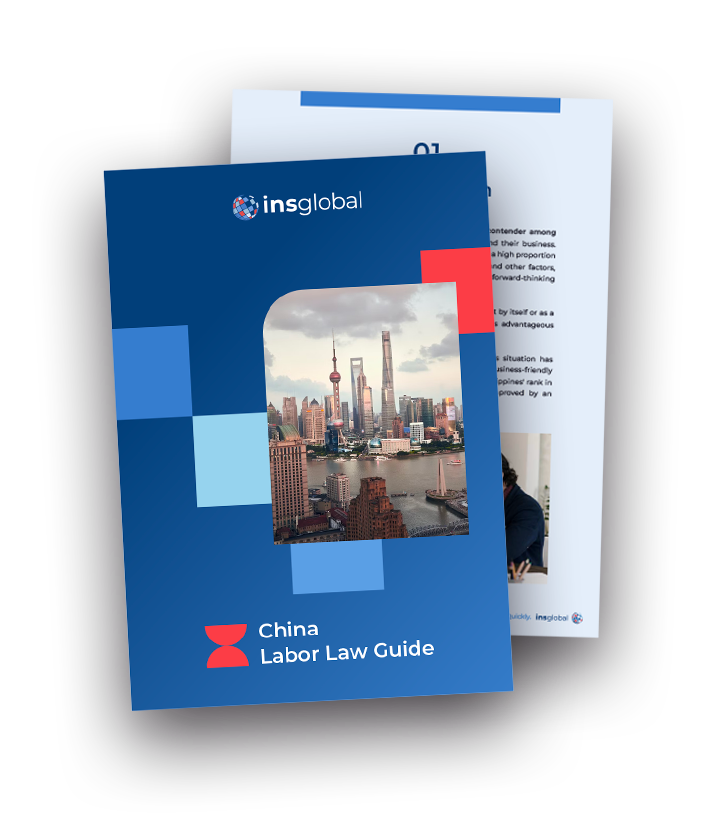Rules on Chinese outbound investment shifted a lot following the growth in capital outflow in 2016. In December 2017, the National Development and Reform Commission (NDRC) issued a new system controlling outbound investment outlined in the Administrative Measures for Enterprise Outbound Investment (AMEOI).
The new rules bring changes to the reporting and monitoring system. The new system also focused on limiting outbound investment in sensitive regions and industries, bringing capital outflows from domestic capital more in line with national interests.
All outbound investments by Chinese firms (including overseas affiliates of Chinese companies) must be detailed in an online information system. Only some outbound investments, however, require approval and monitoring under the new system.
This topic is especially important to consider now due to the changing nature and outcomes of China’s Belt and Road Initiative (BRI).
China’s rules on outbound investment affect different groups of outbound investors, between which, the rules and approval process for outbound investments will differ slightly.
The new system distinguishes between:
- small (under USD300 million) and large investors
- investors in sensitive industries and regions
- fully domestic investors versus domestically controlled foreign entities

Tired of scrolling? Download a PDF version for easier offline reading and sharing with coworkers
In a hurry? Save this article as a PDF
Tired of scrolling? Download a PDF version for easier offline reading and sharing with coworkers.
Fill up the form below 👇🏼
National Goals for Outbound Investment
The new rules on outbound investment help to guide a number of national goals by balancing the need for outbound investment in some areas while limiting it in other areas. The NDRC wishes to encourage outbound investment to support development projects abroad like the Belt and Road Initiative. They may also buy overseas assets of particular interest such as high-tech startups.
However, authorities wish to disrupt capital outflows and keep investment capital within the country to finance domestic development. Authorities are also concerned about the pressure that capital outflows put on the RMB.
The new rules are intended to ensure that outbound investment deals are real and not used as a means to merely transfer money abroad to tax havens.
Generally speaking, the domestic tone on outbound investment has evolved. President Xi Jinping has referred to outbound investment as a “national security matter”. The stated goal of the new rules is to curb “irrational” investment. This shift comes a few years into the push for Chinese companies to “go out” and become more global in their reach and scope.
Check Our China Labor Law Guide
Learn how the Chinese law is applied in all aspects and situations, from an employer and employee perspective

A New Regulatory System for Chinese Outbound Investment
Upgraded Supervision and Enforcement
The new system for outbound investment monitoring creates an information sharing tool among regulators that will increase the effectiveness of supervision.
Take, for example, if one body suspects a company of failing to comply with outbound investment rules listed in the AMEOI. Then, it can issue a warning to other regulators able to track down unlawful activities.
In the past, Chinese bureaucracy has struggled with effective industrial regulations when responsibilities are spread across a number of regulatory bodies. This is due to an ambiguous division of roles and duties.
One of the biggest changes presented is that some investments will now be monitored once the transaction is made.
Before, outbound investment supervision was restricted to the pre-transaction phase. Ongoing monitoring will apply to investments exceeding USD300 million and those into restricted regions or industries.
Outbound investors (both Chinese investors or controlled foreign entities) must now report the occurrence of an “adverse event” to the NDRC within five business days. Adverse events may include significant loss of assets or a major event harming the relations between China and the related country.

Revision of Transactions Covered
For investments exceeding USD300 million, the investment entity must submit a report to the National Development and Reform Commission and wait for approval. Outbound investments made directly by domestic investors must follow the 2014 record filing procedure specific to the NDRC.
The new system distinguishes between outbound investments by domestic investors and outbound investments by overseas investors controlled domestically.
Overseas investors controlled domestically are subject to the AMEOI. However, not the Management Measures of Approval and Recordation of Outbound Investment Project, which domestic investors remain subject to.
Non-restricted outbound investments of any size from overseas investors controlled domestically will not be subject to the previous report filing system, which domestic investors are still subject to. Instead, they must file a situation report with the NDRC.
The new system treats investments into Greater China (Taiwan, Hong Kong, and Macau) the same as other outbound investments.
Additional Compliance Requirements and Costs
The AMEOI is unlikely to increase compliance costs for foreign companies. In part, this is because the new rules cancel the previous information report system. If an amount is under USD300 million and not in a sensitive area, no pre-approval or reporting from the NDRC is required.
Investments exceeding USD300 million in total must submit a closing report to be filed within 20 days of the end of the project.
Sensitive Areas
Investments in sensitive regions and industries must receive the approval of the central government. Sensitive regions include:
- countries with no diplomatic ties to China
- areas experiencing domestic unrest
- areas where investment is restricted by sanctions with which China complies
Sensitive industries include:
- military equipment
- weapons
- communications
- media
- real estate development
- energy
Outbound investments in hotels, real estate, and entertainment are listed under the ‘restricted’ category.
The new rules laid out by the NDRC outlines a “prohibited” category, which covers investments deemed a threat to China’s national interests and security. Such investments might involve the export of Chinese military technology, investments that involve the use of domestic products that have been banned for export, investments illicit industries such as pornography.
Conclusion- A Reduction in Chinese Outbound Investment
After skyrocketing in 2016, China’s outbound investment flows have subsided considerably. This likely comes as a relief to authorities, attempting to balance a challenging bundle of industrial, economic, and financial goals.
Major regulators, including the Ministry of Commerce, the NDRC, and People’s Bank of China have expressed their concern over the massive capital outflows in recent years.
The new tone surrounding outbound investment in China may have some impact on the global M&A landscape. This may result in fewer Chinese acquisitions of global real estate or Hollywood film institutions, for example.
If authorities can guide Chinese outbound investments, we will see increasing investment to infrastructure projects supporting the Belt and Road Initiative and fewer investments to safely park cash overseas.
Laws and regulations in China concerning business relations with outside sources change regularly. That’s why it’s essential to have a firm grasp of local requirements to protect yourself and your employees in China. Contact INS Global today to learn more about our legal compliance services.

SHARE